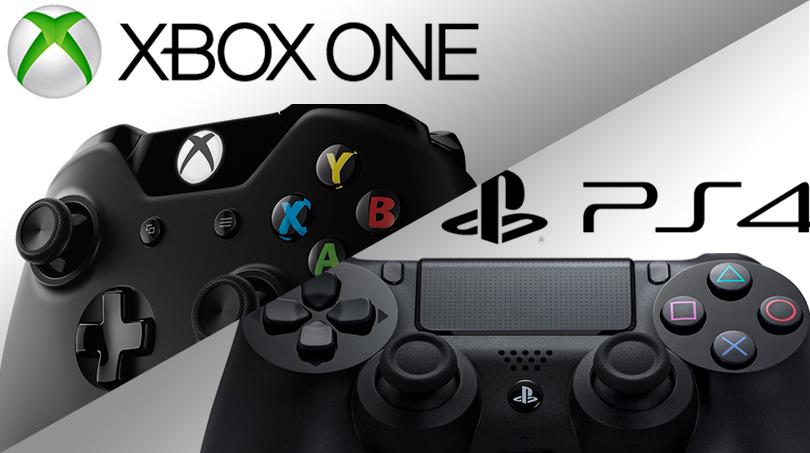A New Generation: Gamers Prepare to Bid Farewell
October 21, 2013
For almost 8 years, we have been in the seventh generation of home video gaming. The PlayStation 3, Xbox 360, and Nintendo Wii have been the pinnacles of video game systems since 2006. Gaming is always evolving, but the current generation has certainly been one of the most revolutionary ever. Companies are pushing graphics and gameplay to their absolute limits, bringing some of the most realistic and cinematic gaming experiences of all time, as exemplified in titles such as this year’s “The Last of Us” and 2011’s “Gears of War 3”. Looking back, we have technologically advanced further than ever. This November, the current gaming era will come to a close with the release of Sony and Microsoft’s brand new home consoles, the PlayStation 4 and Xbox One, respectively. But are we advancing too fast, at too rapid of a rate? Gaming enthusiast Nathan Thompson has spoken out about his history with gaming.
“My first game system was a Game Boy Color,” Thompson reminisces. “But as a teenager, I discovered the “Halo” series, and back then gaming didn’t get any more advanced than that. That was when I decided, ‘this is so cool. I want to learn more about how this works’. Ever since then, I’ve kept up with the advancing technology.”
Sony, Microsoft, and Nintendo have been competitors in the gaming industry for over a decade now. Each company’s systems are designed to cater to a different demographic. Sony focuses on the gameplay, the way the game works and functions, making them the biggest go-to company for gamers looking for a challenge. Microsoft focuses on entertainment, the ability to do more than play games, to create a piece of technology that can identify with its user. Nintendo’s main goal is to be family-friendly, to make something that casual video game players can easily become accustomed to.
“I own consoles from all companies,” Thompson recalls. “I’ve explored numerous systems because each company has their own exclusive games and twists. Even as technology evolves, that won’t change.” He knows a lot about the hardware used to run game systems, and interestingly, consoles always have the same engine, it just constantly upgrades every 5-10 years or so. They learn to push the limits of the same thing further and further, rather than completely revamping the wheel.
But Thompson believes that we are finally beginning to push the limits of our game systems too far for their own good. “All they want to do in the long run is make money,” he says. “The PS4 and Xbox One, unfairly, only support HD TVs, which is a disadvantage and financial bump in the road for those who either don’t own one or can’t afford one. Microsoft and Sony both know that in order to play their new systems, you are required to buy an HD TV, and they know gamers who don’t have one to their name will go out and find some way to buy one, putting more money in their [Sony and Microsoft’s] pockets.”
Both the PS4 and Xbox One allow you to purchase games in two ways. You can either go to the store to buy a physical copy like usual, or you can buy the games using an online store. While the current generation of gaming consoles has the latter feature, you can only do that for older games. The new consoles will be the first that allow you to buy any and all main titles online if you choose. To some, this will make getting games easier to do. For some, it is just a sign of our country’s laziness to not get up off their couches to get something they want to have.
“Yeah, it makes it easier to buy games, but will it really make people think twice?” Thompson vents. “Because you can just sit there and buy that new game you saw an ad for, why not just blow all your money on other games, too? Digitally purchasing blockbuster titles means that if you lose your system, you have to buy it all over again. If you really want to purchase a game, why can’t you just take 10 minutes of your day to go and get a copy you can have forever?”
One of the next generation systems, Nintendo’s Wii U, has been available since November of last year. Unlike its competitors, it supports normal definition televisions and runs on a different piece of hardware. But this isn’t so much because Nintendo cares for the economy and wants to make their console cheaper, but rather because they are always a step behind on technology. What they make up for that with, however, is their ability to integrate a twist in each of their systems that separates them from the rest of the pack.
Nintendo’s previous console, the Wii, was the very first game system to contain motion controls, and it was released in 2006, about 7 years ago. Not all that long ago, but at the time there was nothing else like it. After that, Sony and Microsoft eventually began to copy them, what with Sony releasing the PlayStation Move, a motion-detecting control system near-identical to the Wii’s, and Microsoft releasing Xbox Kinect, which goes a step further by detecting the player’s entire body movements using an advanced camera. These features are all taken a step further this next generation.
“We may seem to be going as technologically far as possible at the moment,” Thompson continues. “But I remember when I watched E3 [a gaming convention on cable TV every summer] and the new systems were unveiled. The general consensus on them [the new systems] seems to be negative, because they only seem to exist to make money and promote gimmickry. Microsoft, I’m looking at you.”
The Xbox One has Kinect built directly into it, which technically means it’s watching you at all times. It also has a voice command feature, as well as a burnout equivalent to the “red ring of death” on the Xbox 360. It’s complications make the PS4 the go-to console this next generation, as it contains no stalking camera, is smaller and easier to operate, and actually seems like a step forward from the PS3. The Xbox One seems like an Xbox 360 with better graphics and even more problems.
If you’re itching to get your hands on a new game system this holiday season, the PlayStation 4 and Xbox One hit shelves this November, each a week apart from each other. For more information, search on Google, visit IGN or Gamespot, or go to your local GameStop. Which are you most excited for? Take your vote in the polls!










